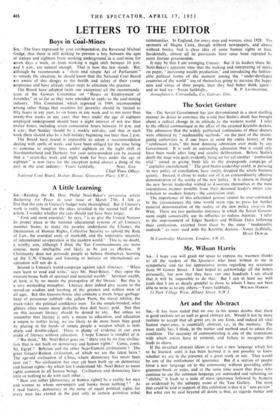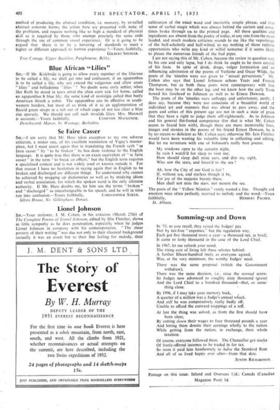Art and the Abstract
Sta,—It has been stated that no one in his senses doubts that there is good realistic art as well as goOd.abstract art. Would it dot be more realistic to accept that all great art,-in any form, and indeed all vital human exper:ence, is essentially abstract, i.e., in the memory. The issue really lies, I think, in the matter and method used to attain this condition. The necessity of communicating is one of the restrictions with which artists have to contend, and failure to recognise this leads to chaos.
If the so-called abstract idiom is in fact a new language which has to be learned, until it has been learned it is not possible to know whether we are in the presence of a great work or not. That would be one of the misfortunes of ignorance. But if a section of people loose a new language on to the community without providing either grammar-book or rules, and at the same time assert that those who continue to use the common language are outmoded and subsisting on " clichés," it leads to a state of mass ignorance followed by hysteria as evidenced by the unhappy event at the Tate Gallery. The most that could be said in support of this exhibition is that it is " non proven." But what can be said beyond all doubt is that, as regards matter and
method of producing the abstract condition, i.e. memory, by so-called abstract concrete forms, the artists here are presented with none of the problems, and require nothing like so high a standard of physical skill as is required by those who attempt precisely the same ends through the use of common visual experience. Or is it going to be argued that there is to .be a lowering of standards to meet a



































 Previous page
Previous page